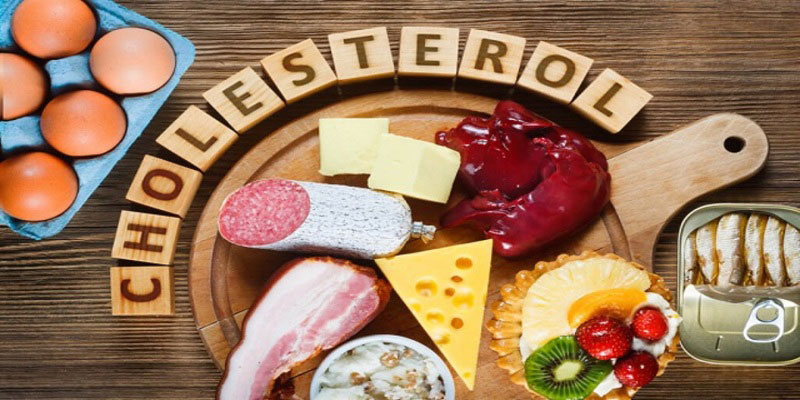Stay Calm: 10 Effective Ways to Instantly Reduce Blood Pressure
2024-11-03 00:00:00 By Celia Shatzman
Managing blood pressure is crucial for maintaining overall health and preventing long-term complications such as heart disease, stroke, and kidney problems. Many individuals grapple with finding immediate and effective solutions to keep their blood pressure in check. This guide outlines eight proven approaches that can swiftly alleviate elevated blood pressure levels, helping you regain control and peace of mind. These strategies range from simple lifestyle adjustments to incorporating specific exercises and relaxation techniques that have been scientifically validated. Whether you're experiencing temporary spikes or managing chronic hypertension, these approaches aim to provide immediate relief while promoting long-term stability.
Deep Breathing Exercises

One of the simplest yet most effective methods for rapidly lowering blood pressure is through deep breathing exercises. By taking slow, deep breaths, you can help relax your blood vessels and lower your heart rate, resulting in a decrease in blood pressure. To practice deep breathing, find a comfortable positioneither sitting or lying down. Close your eyes and inhale slowly through your nose, allowing your lungs to fill completely. Hold your breath for a brief moment, then exhale gently through your mouth.
Repeat this process for several minutes, focusing on your breath and allowing your body to relax with each inhale and exhale. This technique helps activate the parasympathetic nervous system, promoting a state of calm and reducing stress, which are both critical for managing elevated blood pressure levels.
2. Rapid Hydration
Staying properly hydrated is vital for maintaining healthy blood pressure levels. Drinking a glass of water can provide immediate relief if you're experiencing elevated blood pressure due to dehydration. When the body is adequately hydrated, blood volume is better regulated, allowing blood to flow more smoothly through the veins and arteries. Aim to drink several glasses of water throughout the day, especially during hot weather or after exercise, to prevent dehydration.
Sipping water gradually will help maintain ideal hydration levels, thus supporting cardiovascular health and reducing the risk of sudden blood pressure spikes. Always keep a water bottle nearby as a simple reminder to stay hydrated and contribute to overall heart wellness.
3. Incorporate Potassium-Rich Foods
Including potassium-rich foods in your diet can help lower blood pressure levels by balancing out the negative effects of sodium. Potassium helps in relaxing blood vessel walls, promoting efficient blood circulation. Foods such as bananas, oranges, sweet potatoes, spinach, and lentils are excellent sources of potassium. Consuming a diet rich in these foods can aid in flushing excess sodium from your body, which is directly linked to elevated blood pressure.
Integrating these ingredients into your meals ensures a steady supply of potassium, offering a natural way to maintain healthy blood pressure levels. Remember to consult with a healthcare professional before making significant dietary changes, especially if you have existing health conditions or are on medication.
4. Engage in Physical Activity
Physical activity is another effective method to rapidly decrease blood pressure. Engaging in exercise helps improve heart health by enabling the heart to pump more efficiently, subsequently lowering pressure on the arteries. Activities like brisk walking, cycling, or even a short jog can significantly impact blood pressure levels. Just 30 minutes of moderate exercise a day can contribute to overall cardiovascular health.
Not only does exercise help reduce blood pressure, but it also releases endorphins, which improve mood and reduce stress levels. Establishing a consistent exercise routine can be a key part of managing blood pressure effectively over the long term.
5. Limit Sodium Intake
Reducing sodium intake is critical for individuals looking to manage their blood pressure effectively. High sodium levels in the blood can cause the body to retain water, leading to increased blood pressure. To limit sodium intake, start by avoiding processed and packaged foods, which often contain excessive salt for flavor and preservation. Instead, focus on cooking with fresh ingredients and using herbs and spices to enhance the taste of your meals without extra sodium. Reading nutrition labels can help identify high-sodium products, enabling better food choices.
Gradually reducing sodium in your diet can help the body adjust, improving overall heart health and supporting lower blood pressure levels. It's essential to maintain a balanced diet, keeping sodium in moderation to promote cardiovascular wellness.
6. Practice Meditation and Mindfulness
Incorporating meditation and mindfulness practices into your daily routine can have profound effects on blood pressure regulation. These techniques focus on calming the mind, reducing stress, and promoting relaxationall vital elements for maintaining healthy blood pressure levels. To begin, find a quiet place and set aside a few minutes each day to focus on your breathing or engage in mindful observation of your thoughts and surroundings.
Mindfulness meditation has been shown to lower stress hormones in the body, which can directly correlate to lower blood pressure. Regular practice can help develop a more tranquil mind, enhancing overall well-being and contributing to better blood pressure management over time.
7. Get Adequate Sleep
Quality sleep is essential for blood pressure maintenance, as insufficient rest can lead to increased stress and blood pressure levels. Aim for 7-9 hours of sleep each night to allow your body to recover and repair. Establish a regular sleep routine by going to bed and waking up at the same time every day, even on weekends. Creating a relaxing bedtime environment, such as dimming the lights and minimizing screen time before bed, can improve sleep quality. Addressing sleep disturbances, like sleep apnea, with a healthcare provider can also support healthier blood pressure levels.
Monitor Stress Levels

Chronic stress is a known contributor to high blood pressure. Learning to manage stress effectively is crucial for maintaining cardiovascular health. Techniques like deep breathing, yoga, tai chi, or spending time in nature can help alleviate stress. Keeping a journal to express thoughts and feelings or setting aside time each day for personal hobbies and relaxation can also reduce stress levels. Understanding your stress triggers and developing coping mechanisms or seeking professional support when needed can lead to better blood pressure regulation.
Conclusion
Maintaining healthy blood pressure is a multifaceted approach involving lifestyle choices, dietary adjustments, and stress management techniques. By staying hydrated, incorporating potassium-rich foods, engaging in regular physical activity, and taking mindful steps to limit sodium intake, individuals can effectively manage their blood pressure. Additionally, practicing meditation, ensuring adequate sleep, and monitoring stress levels play crucial roles in cardiovascular well-being. Implementing these strategies can lead to significant improvements in overall heart health and a reduced risk of hypertension-related complications. Always consult with a healthcare professional when making changes to health routines, particularly if underlying conditions are present.








